#rural farmstead
Explore tagged Tumblr posts
Photo
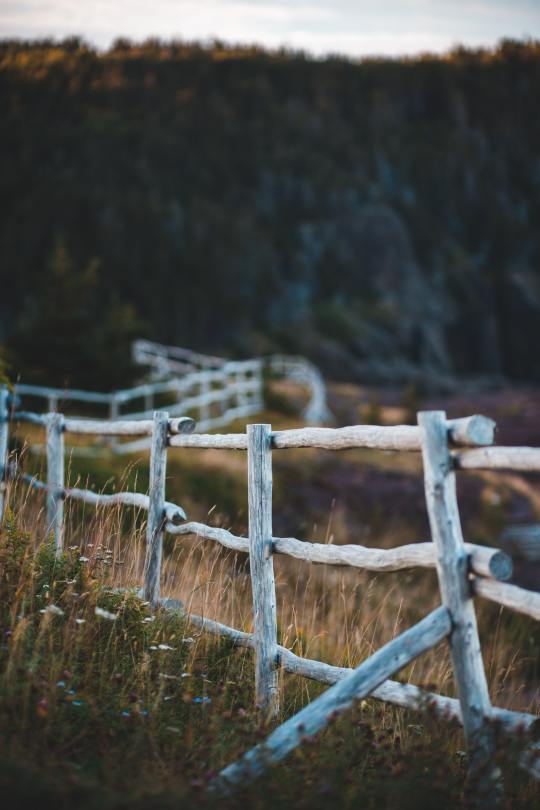
Credit: Erik Mclean
#nature#fence#outdoors#field#grassland#countryside#farm#rural#meadow#ranch#pasture#building#rancher#wilderness#farmland#rustic#farmstead#land#homestead#grain#agriculture#acreage#sunset
332 notes
·
View notes
Text
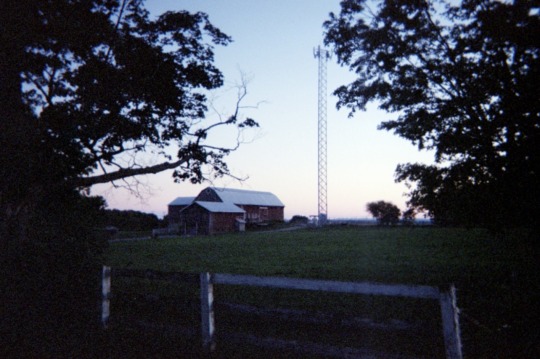
August
28 notes
·
View notes
Text

Farmhouse / A barn, nestled within the quiet valleys
#wanderlust#farmhouse#country home#rural living#homestead#farmstead#cottage#agricultural property#country charm#farmhouse architecture#barn#rustic style#rural retreat#farmhouse design
1 note
·
View note
Text
You know what I'd like to see more of? People romanticizing making your life good in the cities and suburbs (as opposed to moving to the a rural area and having a farmstead).
Like, how cool is it that I can walk to the grocery store? That a library, a farmer's market, and a plant store are all a short bus ride away? How wonderful that I can engage with a community of gardeners, foragers, circus folk and more without having to drive half an hour or more each way? That should I need it, a hospital is less than 10 minutes away?
I think we could stand more imaginating about changing zoning codes so that more neighborhoods are mixed use, so we no longer have vast spreads of suburban houses with nary a grocery store or library. I would love to see more posts about how people are working to actively build community in their neighborhoods, building mutual support networks, and engaging in what's already there.
Are there down sides to living inside of city limits? Yes, of course. But there's downsides to rural living that get washed over, and more than half the population lives in suburbs or cities. So maybe we can do some daydreaming about how to make life here good?
5K notes
·
View notes
Text
Country Charm - Farm (Mis)Adventures
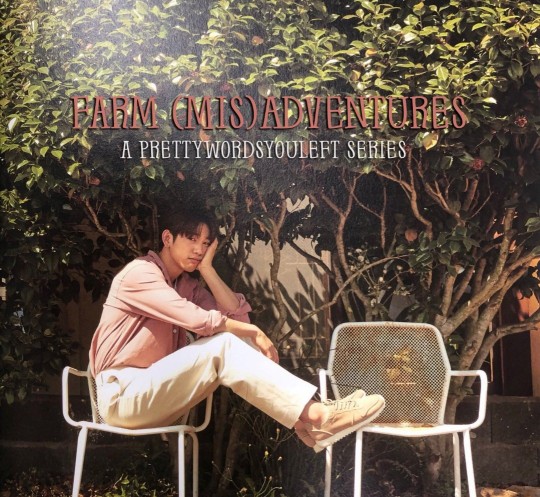
Pairing: Park Jinyoung x female reader
Genre: fluff, slice of life
Tropes: married life, small-town rural setting, cosy cottagecore vibes
Warnings: mild bout of nerves
Word count: 2023
Farm (Mis)Adventures is an ongoing series of snippets of self-indulgent and wholesome life with Park Jinyoung as your husband, turning a somewhat overrun farmstead into your family home and learning to slow down in life after leaving the city grind behind.
Country Charm |

“This is the one.”
Turning to look at your husband, Jinyoung, you felt so overwhelmed. This place had all been but a dream for the longest time. Ever since you were a little girl, you had loved horses and told everyone you’d grow up and live on a farm with your favourite animal. This, coming from someone city-born and bred, used to make the adults around you chuckle with delight at the fervour of your declaration, responding with a “of course you will, sweetie!” that had firmly cemented you’d reach that goal sometime in your life.
Growing into an adult, you slowly realised they had just been placating your passion, yet here you were. Standing next to your husband on the little farmstead of your dreams.
Okay, so it wasn’t exactly what you had drawn constantly as a child. The villa home required some updating, the stables were currently only good for storing things in, and the gardens were… well, they were so wild that you couldn’t venture along the pathways around the house. But you could see the charm in the little ten-acre property. The fencing was thankfully updated, and the boundary line was safe enough for you to move your horse Honey in with a little modification. The foundations of the four-bedroom home were solid and built to last, and the beautiful wooden flooring throughout was original. It was within the budget you and Jinyoung had discussed, along with enough to get the kitchen project started. There was ample storage, a conservatory, a small established orchard – the only part not overtaken by the unruly garden – and you could feel yourself settling here. Growing, thriving, and falling further in love with your life and your new husband.
It was your dream, right in front of you.
Something in your expression must’ve captivated your husband because he wasn’t the type to suddenly kiss you in the company of strangers. But he didn’t seem to care for the real estate agent lingering nearby, his face coming closer to yours, his warm eyes searching yours. “You’re certain.”
“This is it,” you repeated, nodding your head softly.
“Alright.”
“Really?” You couldn’t control the bounce in your step, the widening of your gaze, whilst Jinyoung’s eyes crinkled with smug delight. Oh, how he’d hold this moment over you for the rest of your lives. But you didn’t care because he was helping you bring to life your childhood dream. “Oh gosh, you’re not joking? We can put in an offer?!”
“Looks like you’ve won me over to the country charm, Y/N.”

Six weeks later, you were a ball of anxiety as Jinyoung navigated the winding country roads, your hands clasped tightly in your lap. You normally drove the horse trailer whenever it was hitched to the SUV, but you were beyond grateful that it was Jinyoung who had taken over this drive. Still, you kept your gaze on the little camera monitor that linked to the box, watching as Honey travelled quietly in the back, uncaring of the horse equipment packed tightly – and very securely, thanks to Jinyoung’s triple-checking – in the partition beside her. You were so close to your new home, and you didn’t know if you had imagined this all up or if you were about to wake up from a beautiful dream.
Surely, moving to your own farm shouldn’t feel this surreal.
“Calm down,” a smooth voice instructed beside you, and you darted your gaze to your husband’s. Jinyoung didn’t remove his eyes from the road, but you could tell he was aware of any minuscule reaction within your wired body. “We’re ten minutes away. She’s travelled like a dream. You, not so much.”
“I’m worried.”
“About?”
“It not being like I remember it looking.”
Due to having to tidy up loose ends back in the city, you had barely managed to make it to the key exchange in time with the real estate out of town before heading back to the city again. You had resigned from your corporate job, and Jinyoung had managed to transfer to the local doctor’s clinic in the small township you were moving into. It was serendipitous that the clinic required a new doctor with one of three now retiring. For now, you weren’t so sure about what you’d be doing. You wondered if that was tying into some of your unease.
“The house will be just as it was. Needing a good clean, renovating, and gardening,” Jinyoung said, smiling softly.
“You know what I mean.”
“You’re worried you saw more than what it was.”
You nodded. “What if the country charm isn’t all that it’s cracked up to be? How will you cope without your favourite coffee shop? And I don’t have an income right now. Honey needs to be fed and--”
His closest hand lifted away from where he’d loosely been holding the bottom of the steering wheel, now warmly encasing yours with firm pressure. Before he could even tell you to breathe, you were inhaling deeply, trying to slow down your anxious thoughts.
“Good girl.”
“I just want this to be everything I’ve always wanted. And for you to be happy here.”
“Baby, I’ll be happy anywhere with you.”
“It doesn’t have air conditioning like our apartment did. And we’re due for that heatwave.”
“I’ll make sure we have fans for now. Don’t worry. Who do you think you married? A clueless guy?”
You smiled warmly then, relaxing into the passenger seat and staring at the man you had married eight months ago. The absolute love of your life, the one person who could drive you so insane, yet had the power to make it all better again with one kiss. Park Jinyoung had been the only man to challenge you over the years, and whilst you had initially found him insufferable upon first meeting, you couldn’t imagine loving anyone but him now.
Your attention turned to the window when Jinyoung slowed down and put on the signal to turn onto your property. This was it. You had bought this place with him. Well, you had been approved for a mortgage and put down a sizeable deposit. It had been quite the process, and yet you were the one who had the keys to this house in your purse.
Jinyoung shared a nervous grin with you as he put the car into park. He leaned over and pecked your lips as he undid his seatbelt, holding out his hand for the keys you were already producing. You watched as he unlocked the main driveway gate, pushing with a little more effort than it should require to get it over a stubborn strip of moss and uneven concrete. You peered out at the overgrown garden running over the fence next to him and let out a laugh. Jinyoung returned to the car with a similar amusement.
“This place is unruly.”
“You should be able to handle that.”
“I married the most stubborn woman I could find, so I guess you’re right,” he teased light-heartedly. Honey whinnied from inside her trailer, and Jinyoung took that as time to move the vehicle up to where they could unload her first.
“Should we have come here and set everything up first before bringing her here?” you wondered aloud, realising the grass would be way too long in any of the paddocks for Honey to be on full-time.
Jinyoung shot you a look. “I told you we should do that. But you wanted our first time here to be the whole family, the horse included.”
You sheepishly ducked your head before getting out of the car. “I’m sure you’ll be the best helper at getting things organised with me.”
Jinyoung grunted non-committedly as you walked down to the trailer to open the back door together. Before you could reach the latch, you were surprised that Jinyoung had jumped the towbar and joined you on your side, wrapping his arms around you from behind and holding you for a moment. “We’re home.”
“We are.”
“It’s going to be exhausting, but worth it.”
You nodded, feeling lighter with his comfort. “You promise you’ll tell me if you hate country life.”
“I got tired of the city grind. Y/N, I’m excited to breathe in fresh air, to not live in a box thirteen stories up and working for a company, instead of for the community. This was the right move for both of us.”
“Well then, should we unload Honey into our new home too?”

Two hours later, you were happy that Honey was settled in her new field. You and Jinyoung had worked on putting up a tape fence to limit how much of the lush grass she peacefully munched on, making sure she could access the field shelter and the water trough you had scrubbed clean. Her things were stored, albeit not to yours or Jinyoung’s best standards, in the stable’s tack shed and feed room, and you were both in need of getting out of the late morning sun.
“Is it strange we’ve been here for two hours, and we’ve not even gone near the house yet?” you asked, and Jinyoung shrugged, reaching into the car for the chilled bag you had packed with lunch foods and drinks before setting out on the road earlier that morning. He then slung his free arm around your shoulders, and you instantly wrapped yourself around his middle.
“Ready to go inside?”
“Remember the real estate agent mentioned the side door by the kitchen is the best way inside. We’ll have to figure out how to unlock the front doors for when the movers come tomorrow with our stuff.”
“Jackson and Sarah will be here by then to help us clear a path for the bigger items to come in,” Jinyoung replied as he unlocked the door then looked at you, the bag he was holding, and inhaled deeply.
“Don’t you dare!”
“It’s customary.”
“You have been working all morning lifting things out of the trailer and car into Honey’s new yard. If you try to pick me up Park Jinyoung, you will break your – JINYOUNG!”
He grunted, almost losing grip of your body. “I mean this in the nicest way, but you’re heavier than I expected.”
“Of course, I am, you idiot! Put me down!”
“Just let me get you over the threshold,” he huffed as you clung to his broad shoulders, worrying about him toppling back with you in his arms.
Thankfully, he got you both inside before ceremoniously dumping you out of his grip as he slumped to the ground beside you panting. You glared at Jinyoung, and he winked, easing some of your disgruntled energy.
“Idiot.”
“Welcome home, Mrs Park.”
“I love you, but there was no need for that,” you scolded softly, wiping yourself off as you got to your feet and looked around the empty entryway.
“Well?” he asked, having picked himself up off his knees, now resting his chin on your shoulders.
“It’s a blank slate.”
“It is not!”
“I know we have a lot of work to do, but it’s blank from the last owner’s possessions. It feels like a great place to start this new chapter, don’t you?”
“Hmm. I think I need to get the Dyson mop out of the car. The floors don’t look very clean.”
“The last owner was eighty-five and moving into his son’s house three hours away. I wasn’t expecting to have a squeaky-clean home. It needs us to do that first clean before our things arrive.”
“I’m sore and tired.”
“Because you lifted me over the threshold!”
Jinyoung rolled his eyes. “And helped with Honey.”
“Farm life, Jinyoung.”
“Farm Adventures, more like.”
You watched as your husband walked further into the house, taking the right into the kitchen before hearing him yelp in pain.
“A cupboard door was open!”
“Farm Misadventures then?” you called out, hurrying in to find him nursing the side of his head. You couldn’t hide your mirth, even as you replaced his hand with your own, gently rubbing the area and being thankful there had been no immediate bump.
“With you around? Most definitely.”
_________________
All rights reserved © prettywordsyouleft
[GOT7 Masterlist] | [Main Masterlist]
#kwritersworldnet#park jinyoung#jinyoung fanfic#jinyoung fiction#jinyoung scenarios#jinyoung fluff#got7 fanfic#got7 fiction#got7 scenarios#got7 fluff#pwyl; farm (mis)adventures#kpop fiction#kpop fanfic#kpop scenarios#kpop fluff#prettywordsyouleft
86 notes
·
View notes
Text
a room with a view; abby anderson
part one
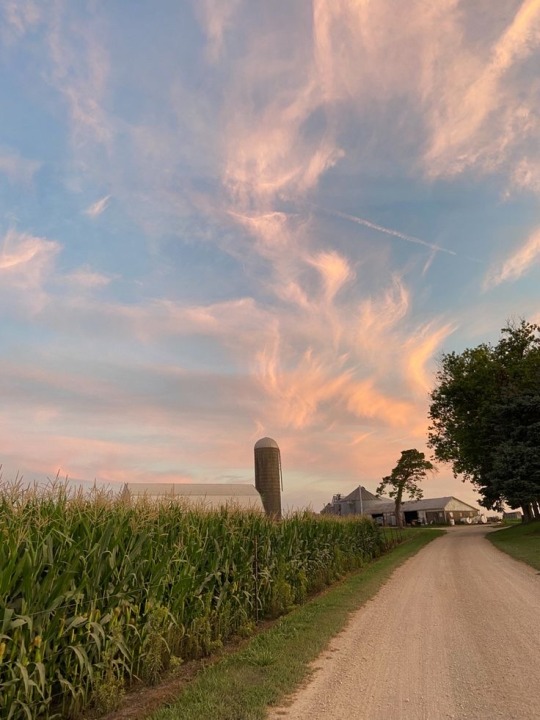
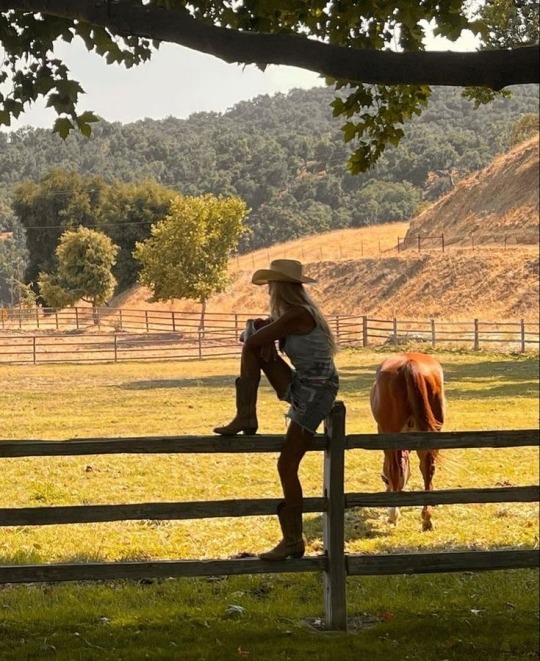
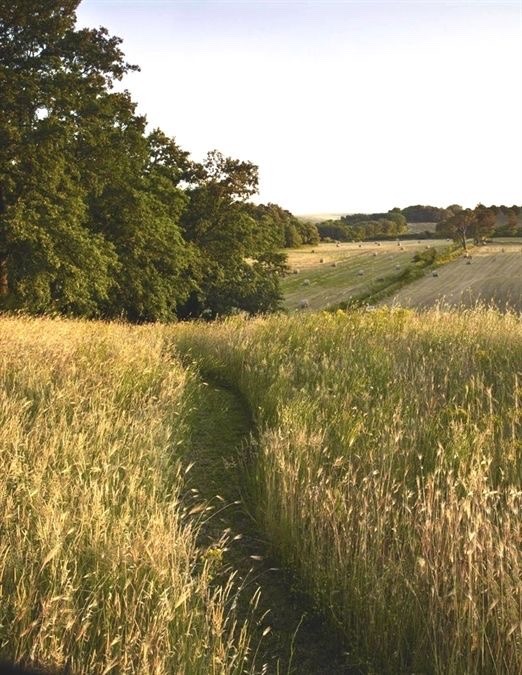
warnings; older!abby, ditzy fem!reader, mdni
wc; 1.1k
you were getting tired of the bustling city-that-never-sleeps lifestyle, and it was starting to take a toll on you, leaving you feeling burnt out and in need of a little getaway for a while. you had decided to surf the web and look for any airbnb listings, preferably something a couple hours outside the city.
whilst idly scrolling through the available rentals, you eventually stumble upon a listing that catches your attention. the listing is for a room to rent on a charming farmstead nestled in a serene and rural part of a small town, surrounded by rolling hills and lush greenery that seems to span for miles and miles in all directions.
intrigued by the listing, you quickly make up your mind and decide to book this spontaneous getaway. the thought of being on a farm for a few weeks has you feeling giddy and excited about your new adventure, picturing yourself in the idyllic fields and playing with the animals, maybe even going for a dip in a nearby creek.
and after a few swift clicks of your freshly manicured fingertips and a trip to your purse to fetch your credit card details, you’ve finally secured your reservation. you try to hold back your excitement but before long you’re giggling and kicking your feet like a schoolgirl, rustling the soft floral sheets beneath you with your frenzied movements.
a couple weeks later, you find yourself driving up a long and winding path up towards the farmhouse. the fields either side of you filled with gorgeous wildflowers and tallgrass, the gentle breeze causing them to sway slightly. you hum along happily to the music emitting from your radio, a little smile on your face as you feel the warmth of the sun hitting your cheeks.
abby sits on the front porch of the farm house, a coffee mug in one hand and a lit cigarette in the other. she hears the low rumble of your engine and looks over as you slow down and pull up outside the quaint farmhouse. she watches you hop out of your little white convertible and prop your sunglasses up on your head, your wedged sandals crunching at the gravel beneath your feet as you saunter around to the trunk to grab your bags.
abby stands up, taking a final sip of her coffee before walking off the shady porch and towards you. she crosses her arms across her chest and stares at you, clearly unimpressed with your arrival. the clothes you’re wearing scream ‘city girl’ and she thinks you look a little ridiculous walking around in a short dress and high heels.
“i think you're in the wrong part of town, darlin’…” she blows out a big cloud of smoke and raises an eyebrow at you, looking you up and down and throwing the cigarette butt to the floor and stomping it out with the heel of her beaten up cowboy boots. “y/n right…?”
“yeah, that's me…and you’re abby, right?” you smile, before attempting to haul your luggage out of the car. abby nods and sighs before getting closer to help you with your things. “here, let me…” she mumbles, not waiting for your response before grabbing your bags and suitcases one by one. you watch her as she effortlessly lifts the bags and walks with them towards the modest home. you finally get a good look at the woman you’re gonna be spending the next month with, and you feel yourself start to get a little flustered around her as you watch her biceps strain against her plaid shirt.
you giggle softly and look up at her “i could’ve done that myself-” she smirks ever so slightly and gives you another subtle once over, “a pretty little city girl like yourself…? i don't think so, honey.”
abby looks down at you smugly, and gives you a sceptical look, speaking lowly, “ya know.. this is a farm right? this ain’t a vacation. you can’t be wearin shit like that. jesus christ, girl.” she mutters before she starts to take your bags into the farmhouse.
“this is where you’re gonna be staying.” abby sighs and almost rolls her eyes as she leads you down the corridor and into a bedroom. its a small room, nothing like what you’re used to back at home, but you’ll make do just fine. she sets down the pile of bags and stands with her hands on her hips in the doorway. “set your shit up…” she looks at you sternly.
“listen to me missy….im not dealing with any of this bullshit-” she gestures to the excessive amount of belongings you have, from the makeup to the ungodly amount of clothes and other useless material items.
“i don't want you leavin all your things around, yeah? this is my house and you’re gonna follow my rules whether you like it or not…understand?” you resist the temptation to roll your eyes and give her attitude, instead choosing to just nod for the sake of staying on her good side. and with that she turns on her heel and retreats back down the hallway and disappears out of sight.
you let out a heavy sigh and lay back on the bed, giving yourself a little time to adjust to your new temporary home before you start to unpack.
the next morning, you step out of your room, heels smacking against the hardwood flooring as you join abby at the table. she looks up from her newspaper in disbelief and scoffs at your choice of outfit, but its obvious she likes what she sees as her eyes drift down to your thighs, which are barely covered by your itty bitty denim shorts. “coffee?” she pushes over the pot towards you and your eyebrows furrow, “no iced lattes?” she snorts in amusement and shakes her head, “just drink the damn coffee, doll~”
you huff but still bring the mug up to your freshly glossed lips, drinking from the steaming mug, and shuddering a little at the bitter taste, “not even any sugar?” you give her an innocent smile, hoping to woo her into agreeing with you. but instead she looks at you as if you’ve deeply offended her, making it pretty clear she’s not willing to compromise on this.
she finishes reading and snaps the newspaper back together, throwing it down on the table and standing back up. “hey, wh- i wasn't finished!” you pout as she scoops up your mug and pours the coffee down the drain.
“remember what i said!? my house. my rules. now hurry up we got work to do-” she bites back harshly and opens up the door, ushering you out and resisting the urge to slap your ass as you pass by.
god this was gonna be hard work.
#*ੈ✩‧₊˚ ⋆.ೃ࿔myfics⌨️#abby anderson#abby tlou#tlou abby#abby anderson x reader#abby the last of us#abby anderson x you#abby x reader#abby anderson x female reader#abby anderson smut#abby x fem!reader#abby x you
530 notes
·
View notes
Text
i just wanna write summer tom again god i’m so far gone idk whats ooc anymore but he calls to me…. milk-pale tom who’s only ever known the tan of rolled up sleeves and crew socks, bathing in the sun for the first time, apprehensive at the simple human pleasure of it. tom travelling for some magical/historical quest or another, something he can only learn hands-on, labouring for lodging in a rural farmstead or vineyard. the work is familiar, like the war effort and odd jobs for burke; resentment boils under heat and the soft, menial haze of something so distantly simple. he studies his findings on whatever ancient magical site drew him here in the first place, dusk sweeping in through his window, notes scattered on a sunbleached desk. his dark hair is always warm, and the water is different. he feels the delicate contrast in temperature and texture where his ankles graze the summer air before dipping in. and he pulls back, tugs his socks back on and slips into his shoes, frowns at his own wanting with no one there to see it.
#💤#sigh#tom riddle#these are the types of thoughts that delude me into thinking if tom isekaied into this realm i could just take him on a hike or smth#and he would be ok#isnt it so nice to believe that. isnt it fun to pretend
34 notes
·
View notes
Note
Hello again, I’m the same anon who just sent an ask about their brother’s questions. Another more specific thing he’s asked me: Does it harm a cow if a human regularly milks it without taking away the calf?
Our mom used to have a cow in her childhood and she keeps telling us that milking didn’t cause the cow any harm or distress at all. She says the calf still had enough milk to nurse. I’m honestly not sure, but I can’t find any information about this. Which is weird, because I’d expect a lot more people to wonder about this, vegan or not.
Thanks again! :)
You can conceivably have a cow on a farmstead with her calf, and have some milk while the calf is still allowed to feed. This is not viable for a commercial operation though, because you don’t get enough milk to be very profitable when you account for the cost of feed, shelter, heat, water and veterinary care. It is also a problem if the calf is male, because you have to pay all those costs with no profit indefinitely, unless you’re willing to sell them for beef production, in which case the entire sham of this being humane is obviously made completely redundant. Even if you get females, you end up expanding your production indefinitely unless you’re willing to slaughter.
There is also the fact that, like any mammal, a cow’s milk will taper off over time once the calf has been born and no longer requires breastmilk. You usually only get about 10 months of steady milk production. They then need to be impregnated again if you want to continue to milk them, and they can only endure this intensive process 3-4 times. Pregnancy is not risk free, and childbirth obviously takes a physical toll - all of which is manipulated and endured for our benefit. You then have a cow who is not producing any milk but still costs a lot to maintain. Thats why they’re usually killed at about 6.5 years old.
It should go without saying that you need quite a bit of land and resources to be able to own and feed your own cow for milk production, even setting aside the fact that you need a bull or their at least their sperm as well, and you need to be able to afford the calves. This is just completely inaccessible for anyone living in a city, which most people do. Even in rural communities there just isn’t enough land for this to be a solution to commercial agriculture, we already use 2/3 of all arable land for animal agriculture under our current system. This would also be much more inefficient and wildly unsustainable, given the methane emissions of cows.
I think it is likely that your mother is remembering her childhood from under the veil of nostalgia. Does she remember what happened to the calves after they grew up? What happened to the males? What happened to the cows themselves once they could no longer produce milk? It’s a nice idea for someone who wants milk without feeling cruel, but it isn’t practical for anyone who isn’t rich and willing to operate at a loss. Even if it were, that isn’t where she is getting her milk now, so it’s not very relevant to any conversations about her current consumption. Besides, as you said, it still wrong to exploit someone else’s body and reproductive system because you want to drink their breastmilk.
23 notes
·
View notes
Text

hi hello! my name is mae (27, she/her, GMT-5/est). i'm teeming with excitement ; below the cut, you'll find all the basics on my muse, eudora, along with some potential wcs ! if you'd like to plot, give this post a like and i will slide into your tumblr dms ! or feel free to reach out to meee
full name ⸻ eudora yang. nickname(s) ⸻ euds ; button. preferred name ⸻ eudora. age ⸻ twenty-three. zodiac ⸻ taurus. hometown⸻ [ redacted ] a rural village outside of londai. current occupation⸻ farm hand & freelance photographer. character inspiration ⸻ lucy pevensie (the chronicles of narnia) ; sophie (howl's moving castle) ; clementine kruczynski (eternal sunshine of the spotless mind) ; amélie poulain (amélie) faceclaim⸻ jang yeeun / yeeun (soloist)
history ⸻ eudora grew up far from velgrove, in a house that always smelled faintly of pine cleaner and cigarette smoke. her childhood was quiet, marked by the sounds of her brother, aaron, laughing or hollering and the gentle clicks of her mother's typewriter. but after aaron died, grief hollowed out her home. the walls that had once held her close seemed to suffocate her, haunt her. she left with a duffel bag, a vintage camera, and a shoebox of her brother's belongings: a watch, a sketchbook, and three polaroids of places she'd never been.
these images became a compass, leading her to velgrove. she didn't introduce herself when she arrived. just after a summer storm, she showed up at the liminal edge of grove acres, with muddy boots and a dripping duffel, asking if the farmhouse had a spare room and if she could work in exchange for it. the locals didn't question much, but they didn't open their arms, either.
eudora fell into a rhythm: early mornings pulling weeds, afternoons tending to the chickens, evenings wandering with her camera. she catalogues the town not in words, but in light and shadow. she has always felt more comfortable watching than being seen.
tucked as she is now, between the trees and the town, eudora is sure all the legends are true. velgrove holds something just out of her reach, something she's determined to capture. despite nearly ten months in town, she still has no real friends ; but she has hundreds of photographs, and maybe that's the beginning of belonging.
wanted connections / plot ideas ⸻
PHOTOGRAPHER NEEDED: eudora occasionally seeks out side work to support her dreams of becoming a photographer full-time ; whether it be snapping pictures for local business ads or events, taking commissioned portraits, or thoughtfully framing and selling pictures from local places around town. maybe your muse has a need for some photographs taken? or maybe your muse sees a photograph that slips from her bag that interests (or disturbs?) them...there's a lot to work with here, and i'd be happy to plot out specifics !
THE ONE WHO REMEMBERS: eudora blew into velgrove on a summer storm--but your muse is a life-long resident of the grove. oddly enough, your muse seems to recognize eudora, like a familiar stranger...could it be eudora bears some strange resemblance to the unnamed girl in the photograph you found in the attic, all those years ago?
ROOMMATES: eudora takes up one of four rooms on the farmstead, and diligently works to earn her keep ... she's a quiet, odd tenant to share quarters with ; how does this compliment or clash with your muse? i would love to meet someone louder coax her out of her shell or barge into her room unannounced ; or maybe explore a tentative friendship building! i love the idea of creating found-family vibes here, and even group threads could be fun! (note: this wc is specifically for fellow residents of the farmer's barn, sorry!)
RUNNING FROM SOMETHING: velgrove has always been a place for people running for something...at least, that's how it feels for eudora and your muse, who find a tentative understanding of one another in a shared desire to escape their past. maybe our muses lean on each other for quiet support ; deep conversations or long, peaceful silences. or maybe, your muse is just as committed to understanding velgrove's secrets as eudora is...
YOU THINK YOU'RE INVISIBLE, YOU'RE NOT: eudora tries to live her life in velgrove quietly. the consequence of this is that, too often, she keeps others at arms length. for better or for worse, your muse has slipped past these defenses ; your muse can see eudora more for who she truly is. romantic or platonic, it's an emotional slow-burn.
more coming soon !
11 notes
·
View notes
Text
sarie ethnicity musings (with historical context!!)
It’s hard to overstate just how much Sarie’s Jewishness impacts her as a character, specifically how she views herself in relation to other people. Afrikaans-speaking Jews (Boerejode) lived mainly in rural areas where knowledge of Afrikaans would be needed in daily life (mainly the rural Cape and the Transvaal). However, the biggest waves of Jews immigration came from Lithuania in the 1880s and 1890s, followed by an influx of German Jews in the 1930s. Most of these immigrants (with the exception of people like Sarie’s mom who married into Afrikaans-speaking families) settled in cities like Cape Town, Johannesburg, and Durban, where knowledge of Afrikaans wasn’t needed. So right off the bat, Sarie is alienated from the vast majority of her community by virtue of being Afrikaans-speaking.
But that doesn’t mean she belongs among the Afrikaans-speakers, either! White Afrikaans-speaking (Afrikaner) identity is fundamentally tied to adherence to a deeply-rooted Calvinist tradition (non-white Afrikaans-speakers are generally split between Calvinism and Islam). For a nationalist hardliner, it’s impossible for a Jew (or even a Catholic or an irreligious person) to be considered an Afrikaner, regardless of how White or Afrikaans-speaking they are. And in the 1930s and 1940s, these kinds of hardliners were everywhere.
The intensification of Afrikaner nationalism in this period would culminate in the accession to power of the National Party in 1948, which would go on to enjoy both the near-unanimous support of Afrikaners as well as considerable support (albeit less fervent and at times more tacit) from white English-speakers for the next forty-odd years. Expanding on the structures left behind by English colonial rule, the successive National Party governments would institutionalize the draconian policies of mass disenfranchisement, arbitrary displacement, censorship, economic disempowerment, imprisonment, and segregation — all enforced through brutal violence against non-white populations — that we know as apartheid.
Sarie is born at the tail end of 1921, meaning she comes of age in the mid-to-late 1930s. This is where it’s necessary to elaborate on the role that the Depression played in the upswing of Afrikaner nationalism. Lord Kitchener’s scorched-earth policy in the second half of the 2nd Anglo-Boer War (1899-1902) destroyed thousands of Afrikaner farmsteads across the northern Cape, Orange Free State, and Transvaal. Afrikaners had always been an agrarian people; in 1947, less than thirty percent of all Afrikaners worked outside of agriculture. The loss of land forced a majority of mid- and small-scale Afrikaner farmers to either become sharecroppers for English and wealthier Afrikaner landlords, or go into mine or factory work in the cities and towns along the Rand. And as in all societies, these groups were hit hard by the Depression, leaving many Afrikaner workers, poor to begin with, destitute (farmers, especially wool farming families like Sarie's, would also be significantly affected). Suddenly, Afrikaners found themselves living in the same slums, standing in the same job lines, and eating the same food as their Black counterparts — and this is what sparked alarm in the middle-class and wealthy Afrikaner establishment.
Fearing that Afrikaner destitution would erode the myth of white supremacy which legitimized minority rule (or, to take a more Marxist perspective, that the poor Afrikaners would gain class consciousness), Afrikaner nationalists and their English supporters spent untold amounts of time and effort trying to rectify this supposed reversal of the “natural” racial hierarchy. This would culminate in the Carnegie Commission of Investigation on the Poor White Problem in South Africa, a 1932 report by the Carnegie Corporation which recommended racial segregation as a solution to the “problem” Throughout the 1930s, Afrikaner nationalists would appeal to the mythical Voortrekker (pioneer) past to foster increased national affiliation. This would culminate in the 1938 Voortrekker Centenary, which saw Afrikaners reenact the trek from the Cape to the interior taken by their ancestors a century earlier.
Sarie would have felt this increase in nationalism acutely, not just as someone whose religious affiliation excluded her from the mainstream Afrikaner milieu, but as a woman. The ideal Afrikaans woman, the “boeremeisie” (farm girl) or “volksmoeder” (mother of the people), was, in the words of author Lize van Robbreck’s high school principal, “proper, humble, and chaste.” Van Robbreck was the daughter of Catholic Flemish parents, and while she had spoken Afrikaans her whole life and been raised on a steady diet of folk dance and traditional songs, in her Afrikaans high school she realized that her Catholic heritage fundamentally differentiated her from her peers. “I could never be one of them, no matter how hard I tried.” Sarie, as both a Jew and as a woman who is neither proper, humble, nor chaste, already finds herself distinctly isolated from the other girls at her school.
And yet, at the same time, I think that Sarie does, to an extent, resent this exclusion. While she frowns on the racial discrimination and antisemitism inherent in Afrikaner nationalism of this era, and as much as she takes pride in going against the grain (manifesting in an admittedly not-like-other-girls attitude towards her fellow Waasies), a part of her is still desperately searching after the validation from her peers, the validation of inclusion, that she was never going to be able to receive. This, I think, is what fuels her continuous affirmation of her South African — and Afrikaans/Boer — identity amongst her fellow soldiers in the SAS. In the SAS there’s nobody who can call her out, who can deny her Boer identity — even if it’s just by virtue of the fact that they don’t know enough to say otherwise. However, I don’t think that Sarie herself would realize that this is what’s pushing her — to her, she’s just explaining her identity with the same aggression she has always had to use to justify herself. I think that there's a reason that Sarie only ever refers to herself as a Boer or a Boerejood, and never, ever, as an Afrikaner.
I’m probably going to follow this up with a whole other essay just about her gender but I spent all of today flying home and there’s hockey on TV and I’m tired so this is all you’re getting for now. Thanks for reading this absolute fucking thesis of an OC post <3
#ch: sarie#notes from the front#!!!!!!! spinning her in my head like soup in the microwave#sas rogue heroes
10 notes
·
View notes
Text
Farmstead
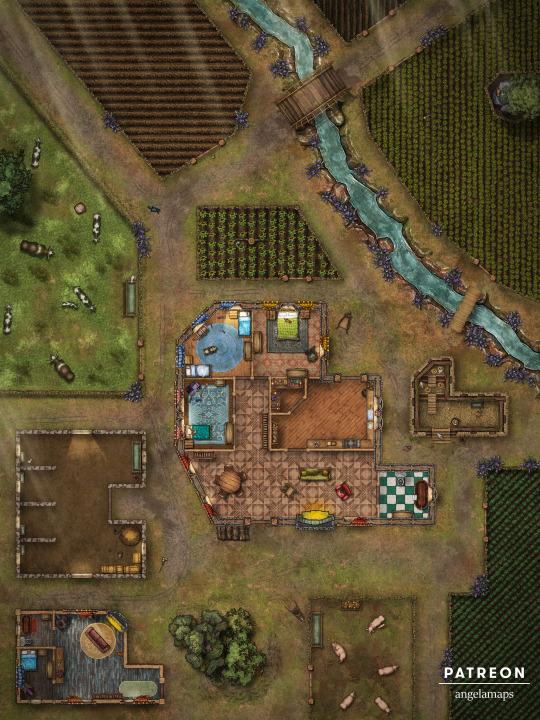
An idyllic farmhouse, its outbuildings, crops, livestock, and plenty of room to raise happy children by the babbling stream that feeds fresh water to these happy lands. Or perhaps the produce that is the output of this particular farm isn’t quite so wholesome, but rather fit for evil wizards and mad alchemists the realm over?! Or maybe you happened to settle in the fey lands. Behold the three variants of this fully animated farm map, where your players might find rural bliss or something more sinister altogether!
#dnd#battlemap#dungeonsanddragons#rpg#ttrpg#dungeonmaster#fantasymap#tabletoprpg#dndmaps#roll20#worldbuilding#pathfinder#cartography#fantasymaps#fantasy#rpgmap#tabletop#mapmaking#dndart#map#battlemaps#tabletopgames#inkarnate#dungeonsanddragonsart#dndmap#fantasyrpg#rpgmaps#foundryvtt#angelamaps
23 notes
·
View notes
Text
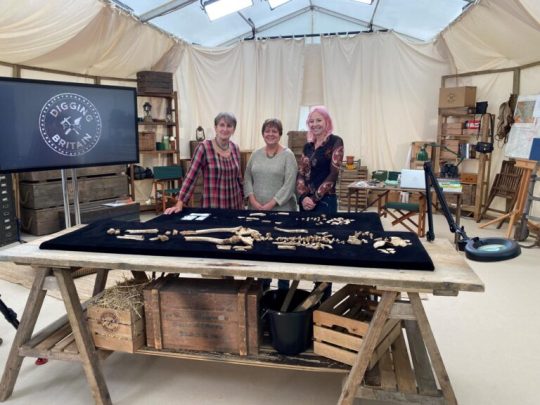
1,500-year-Old Anglo-Saxon Cemetery Found in UK
One of the most notable discoveries was the burial of a teenage girl and child.
Archaeologists in the United Kingdom have announced a major historical discovery dating back to as early as the 6th century after finding the buried remains of over 20 people alongside a range of grave goods including knives, jewelery and pottery vessels, officials said.
Scientists working on the National Grid’s Viking Link project -- construction of the world’s longest land and subsea interconnector involving installation of submarine and underground cables between the United Kingdom and Denmark -- have dug 50 archaeological sites along the onshore cable route since 2020, according to a statement from Wessex Archaeology in the United Kingdom.
“The wealth of evidence recovered is shedding light on life across rural south-east Lincolnshire from prehistory to the present day, with highlights including a Bronze Age barrow and a Romano-British farmstead. The most striking discovery, however, is the remains of an Anglo-Saxon cemetery,” according to Wessex Archaeology.
“The burials in the cemetery deliberately focus on an earlier Bronze Age ring ditch and indicate the funerary landscape was long established,” scientists said. “Archaeologists uncovered the buried remains of over 20 people alongside a range of grave goods including knives, jewellery and pottery vessels. From these 250 artefacts, experts know the cemetery dates to the 6th and 7th centuries AD.”
Among some of the most notable discovery was the burial of a teenage girl and a child, both of whom lay on their sides with the child tucked in behind the older girl, officials said.
“Two small gold pendants set with garnets and a delicate silver pendant with an amber mount were recovered from around the teenager’s head or chest, together with two small blue glass beads and an annular brooch,” according to Wessex Archaeology.
The relationship between the child and the teenager is not yet known -- and may never be -- but scientists are now conducting research and analysis on the subjects, including isotope and Ancient DNA analysis of the skeletal remains.
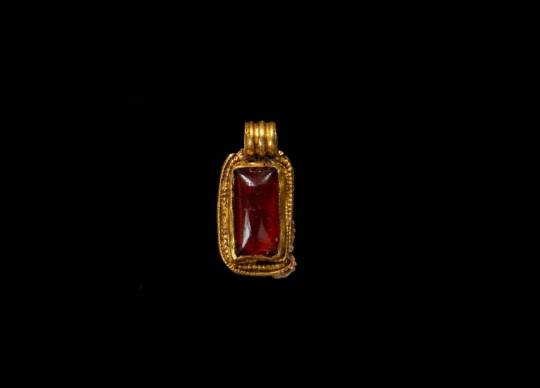
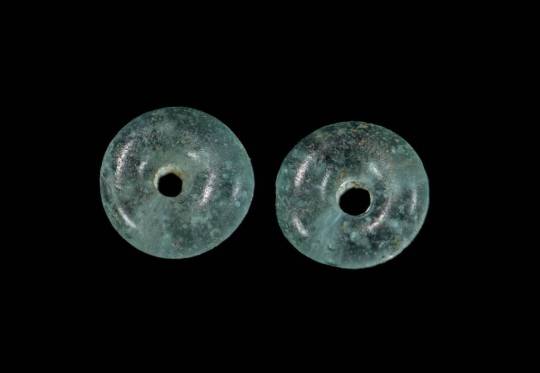
Officials say that this critical research could help to identify “familial relationships and broader genetic links both within this community and between others in the region, and the movement of people in wider society.”
“I really enjoyed being part of the project. It was surprising how many artefacts we found across the route - the gold Anglo-Saxon pendant from the burial ground was a highlight as was the outreach with the local communities to share what we found,” said Peter Bryant who led the project for Viking Link. “It has been very interesting and exciting to help unearth the hidden treasures that have lain dormant for hundreds of years, in such a careful way.”
Specialists will also be looking at the artefacts discovered on the burial site as well as the layout of the cemetery in hopes of learning more about the economic, cultural and social factors affecting this specific community, “including the import of exotic goods and the health of those buried within different parts of the cemetery,” according to Wessex Archaeology. “Although many Anglo-Saxon cemeteries are known in Lincolnshire, most were excavated decades ago when the focus was on the grave goods, not the people buried there,” said Jacqueline McKinley, principal osteoarchaeologist of Wessex Archaeology. “Excitingly, here we can employ various scientific advancements, including isotopic and DNA analyses. This will give us a far better understanding of the population, from their mobility to their genetic background and even their diet.”
Said Wessex Archaeology following the discovery: “As this research unfolds, we hope to greatly extend our understanding of Anglo-Saxon life and death in the region."
By Jon Haworth.
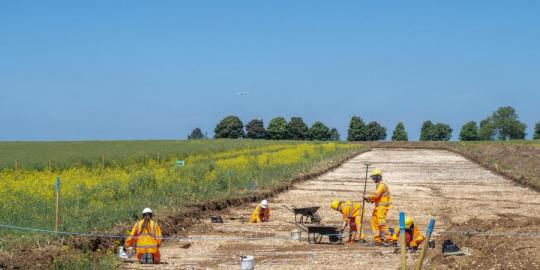
#1500-Year-Old Anglo-Saxon Cemetery Found in UK#ancient graves#ancient tombs#ancient artifacts#archeology#archeolgst#history#history news#ancient history#ancient culture#ancient civilizations#ancient jewelry
40 notes
·
View notes
Text
Today’s reminder Transgender exists in Nature and accepted in Societies.
Green Frogs and Oysters are among the species which change gender.
In North America before and during the European-invasion-occupation, 200+ indigenous cultures recognized non-binary such as Ute, Lakota (“Two-Spirit”). Chumash, Zuni (transgender).
As do many ‘primitive’ peoples around the world like the Buginese of Indonesia who recognize 5 genders.
+++++++++++++++++++++++++++++++++++++++
So what’s the Issue with LGBTQ+?
Patriarchical Cultures (USA!) have issues with equal partnerships between spouses. As well as relating to grown offspring as equals.
The relationship of father, mother, children seen through the rural Patriarchical lens is one of
father/overseer
mother/concubine/breeder, cook, cleaner, nurse, field picker
sons/unpaid field labor;
daughters/unpaid maid-cook-cleaner-baby-sitter-hospice-nurse, field picker
Only one of the half-dozen or so male field laborers can be promoted to ‘overseer’ at the death of the patriarch.
The rest of the brood - male and female - have to be married off, sold off, run off, or drafted into the military.
Otherwise they’ll eat too much of what is grown to pay the t’real ownership’. Or the farmstead will be subdivided until no piece can sustain a family.
For the last 5,000 years rural culture has always been one of a handful of Owners called Masters or Feudal Lords or Lords of the Manor Landlords or Banks.
The Overseer has only ever been a direct or indirect subject of the Owner whether the Overseer is called slave, feudal serf, tenant, sharecropper, migrant laborer.
2 notes
·
View notes
Text
Straw Guardian
On a rural farmstead, A scarecrow jolts to life. He draws his first breath And watches the corn forever.
Seasons shift into decades, But his sense of duty never dies. Armored with tattered denim, He is the sentinel of the harvest.
#poetry#literature#chaotic academia#original writing#light academia#dark academia#academia#poem#fantasy#poetrycommunity#poems and poetry#poets on tumblr#poetic#original poetry#writers and poets#poems#original poem#poet#short poem#poems on tumblr#poemsociety#poems and quotes#free verse#writing#spilled writing#spilled ink#spilled thoughts#spilled poetry#spilled words#writers on tumblr
20 notes
·
View notes
Text
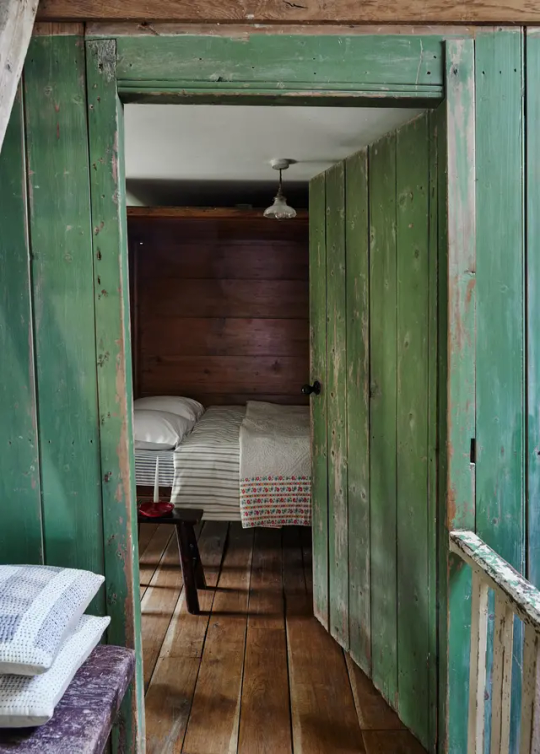
The second bedroom in Dorian Bowen’s 18th-century rural farmstead, via House & Gardens UK (source).
2 notes
·
View notes
Text
Horror! Colonists Attacked! State of War Declared!
From The Federal Gazette - Article written by Tul M'tram

On the planet of Surilia, a desert world meant for our kin, exists a species of subservient aliens who have been - for some time - tending our fields, cooking our food, and generally helping our rule over the planet. They are known as the My'hram to us and had a name for their kin before we entered their lives. When we arrived in Surillia, we found them wanting leadership and a purpose in the galaxy. We have given that to them and more, they are much healthier than when we found them and have been given a better education than they could have imagined before our arrival.
Their culture sees us as holy beings, descending from the stars to improve their lives. This is, of course, a great burden placed upon our kind, but we do not refuse burdens and have taken this mantel - the colonists treating their My'hram as a folk to be led and protected. They, in turn, treat us as their holy defenders. A strange predicament, but not one that we would try to change.
Eventually, though, some of the My'hram began to note that their Holy Masters, as they refer to us, have different rules and different punishments in their realms. This is, apparently, a large theological issue. The Federal government was soon told about this and began to work on a standard set of rules for this planet, to maintain our role as the native's holy rulers.
The rules were soon decided and delivered to each farmstead and city by an "Archangel" - Senator Jypa 'Tasov, who is from Surilia - with a theological reason for the change. This settled most of the problems that the My'hram had, in all parts of the world except for one.
On the Grand Plateau, which stretches for thousands of kilometers and holds a population in the millions, the My'hram were not accepting of the Archangel's new rules. They rallied, denying our rightful rule, and were subjected to the punishment that we decided for them - the removal of vocal cords. The leaders of the rallies were the ones subjected to that, the masses were allowed to return.
This was a mistake. Days later, the main administrative building came under attack by a group of My'hram. Later that day, a general revolt of the species occurred, killing many of our peaceful colonists brutally. The local militia was called up and was able to contain their massacres to the rural portions of the Grand Plateau, the cities and major estates being in the Republic's hands.
The colonists called upon the Federal Government to aid them in quelling this.

The President of the Republic, Ra'daan, soon declared a State of War on the planet, mobilizing an army and a naval group to head to the planet and deal with the rebellious natives. Their armor had been modified to look more divine to the My'hram and have been given the task of retaking the territory from them while handing out the proper punishment for such a crime. In this case, that punishment is a sacrificial death.
As I write this, many thousands of the My'hram have been captured, ready to meet their end, with many more still in open revolt. Our tools will allow us to know which of the My'hram did not kill or speak out against our kin to ensure that only the guilty are punished.
Readers, know this, I will be at the Temple of the Grand Plateau when the day of punishment occurs and will give you a first-hand account, instead of this poor excuse of journalism.
11 notes
·
View notes